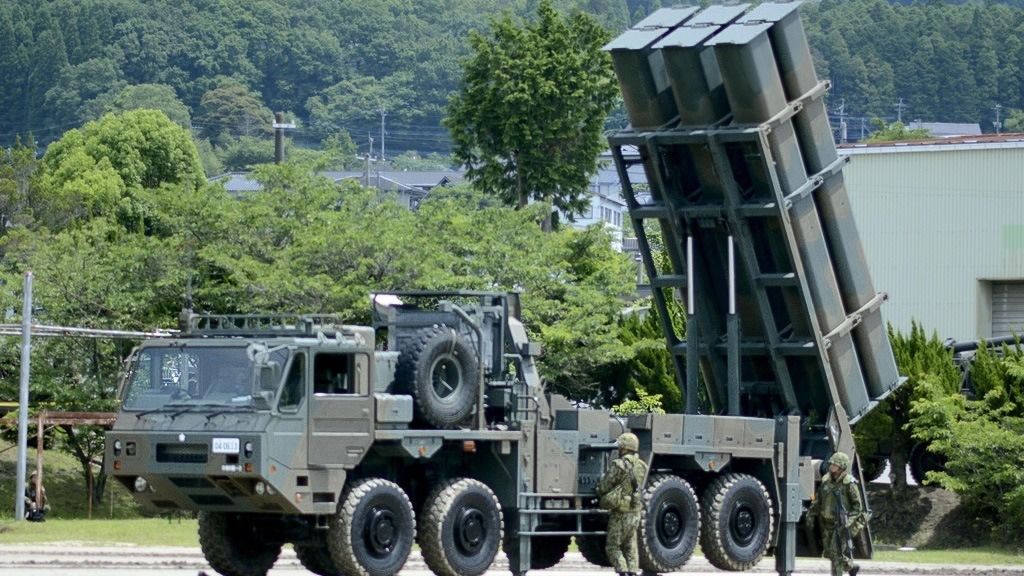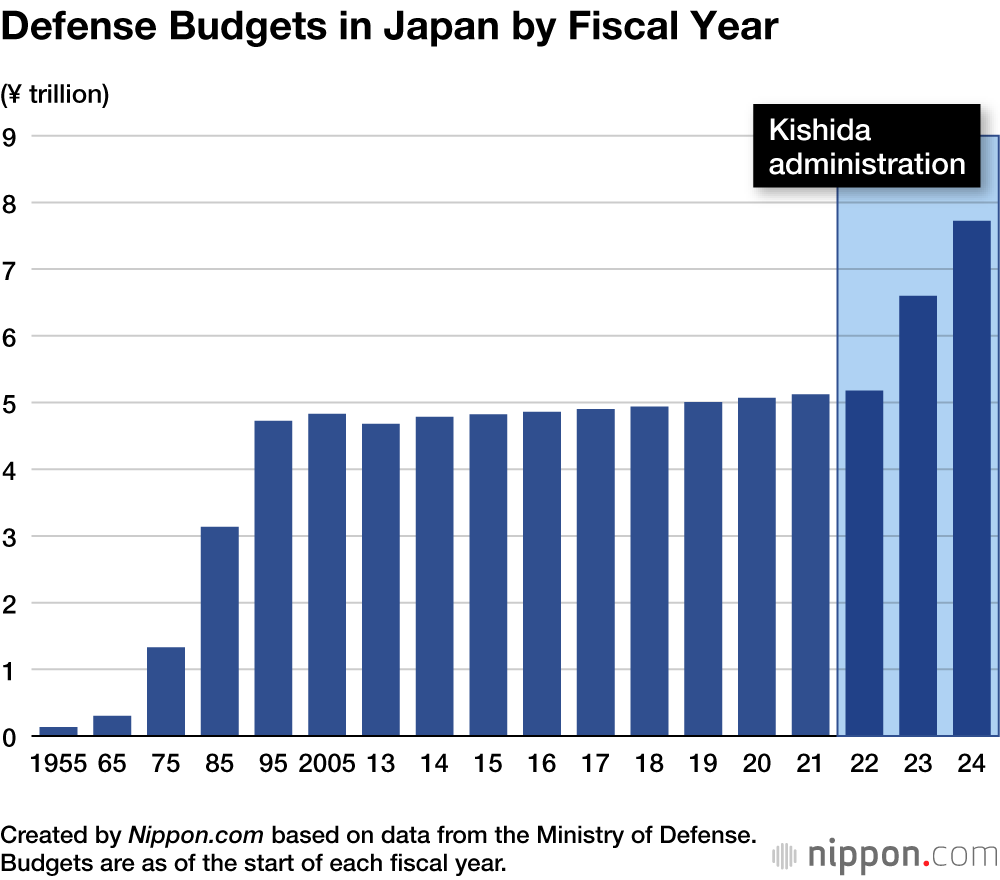
Japan’s Defense Budget Rising Toward NATO Target of 2% of GDP
Politics- English
- 日本語
- 简体字
- 繁體字
- Français
- Español
- العربية
- Русский
Defense Budget Increases by Over ¥1 Trillion a Year
Japan’s defense expenditures were once targeted at 1% of GDP or less. The first budget proposed by the administration of Prime Minister Kishida Fumio in fiscal 2022 totaled ¥5.1 trillion, in line with that policy, but for fiscal 2023 the budget rose to ¥6.6 trillion and it climbed by another trillion to ¥7.7 trillion in the fiscal 2024 budget.
If related expenditures on public works and research in science and technology that can be utilized for security-related matters are also taken into consideration, the fiscal 2024 defense budget swells to ¥8.9 trillion, which is 1.6% of the nation’s GDP.
Raising Defense Spending to 2% of GDP
The increase in Japan’s defense budget is in line with announcements by NATO-member countries of increases of defense spending to 2% of GDP in response to Russia’s invasion of Ukraine in February 2022. The Japanese government has indicated that it will increase its defense-related budget, including infrastructure development, to 2% of GDP by fiscal 2027. Total defense-related expenditures are expected to reach a level of around ¥11 trillion.
According to a Ministry of Defense White Paper and other sources, the ratio of spending on national defense to GDP is 2.8% for the United States, 1.1% for China, 3.0% for Russia, 2.5% for South Korea, and 1.3% for Germany.
In December 2022, the government approved three new security documents that include a substantial increase in defense spending and the introduction of counterattack capabilities. The pillars of the document include a standoff defense capability to attack from outside the range of hostile military units or maritime vessels, integrated air and missile defense capabilities to counter missile attacks through early detection and layered interception, and unmanned asset defense capabilities for intelligence gathering and combat support. Some have indicated that the introduction of counterattack capabilities will transform the SDF’s principles of focusing exclusively on defense.
Objections to Defense-Related Tax Hikes
The government intends to raise revenue through spending reforms and other measures, while making up for any shortfall through increases in taxes on corporations, income, and tobacco, but there are some objections to tax hikes within the LDP. Questions have been raised about whether the increased defense budget is being appropriately utilized in the wake of a number of scandals involving the MOD, including allegations that Maritime Self-Defense Force personnel have been receiving secret entertainment funds from private companies or obtaining improper allowances.
(Translated from Japanese. Banner photo: Type 12 surface-to-ship guided missile launcher unveiled at the Ground Self-Defense Force Yufuin Camp in Yufu, Ōita Prefecture, Japan; the system is expected to enhance Japan’s standoff defense capabilities. © Kyōdō.)

